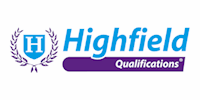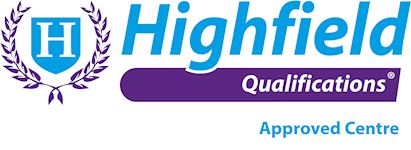
Level 3 Certificate in Assessing Vocational Achievement (RQF), Assessor qualification
CAVA, TAQA, A1 Award | Ofqual-recognised | Full Live Tutor Support via Zoom | Flexible Study
Courses For Jobs Ltd
Summary
- Certificate of completion - Free
- Certificate of completion - Free
- Exam(s) / assessment(s) is included in price
- Tutor is available to students
- TOTUM card available but not included in price What's this?
Add to basket or enquire
Overview
Assessor Training and Qualification with the Level 3 Certificate in Assessing Vocational Achievement (RQF) also known as CAVA or TAQA or A1 Assessors Award
If you want to work as a qualified assessor or start a career as a qualified assessor, then this is the qualification you need.
The Level 3 Certificate in Assessing Vocational Achievement (RQF) combines the other Assessor Awards, which are:
- Level 3 Award in Understanding the Principles and Practices of Assessment (RQF)
- Level 3 Award in Assessing Competence in the Work Environment (RQF)
- Level 3 Award in Assessing Vocationally Related Achievement (RQF)
Once you get fully qualified you will be able to work as an assessor in either a college, further education / private training provider or you can be a self employed worker as a freelance assessor.
What will you be able to do once qualified?
As a qualified assessor, you will be able to assess learners in colleges and in the workplace.
This accredited qualification is a combined qualification, with knowledge-based and skills-based elements, designed for individuals who want to learn adequate assessing competence in the work environment, and understand the practices and principles of assessment in an easy to grasp manner. The course is suitable for anyone who is responsible for assessing progress in their work environment.
Upon successful completion of this course, you will be able to successfully observe and assess candidates in their workplace and start your career as a Qualified Assessor by working for a college, training provider or as a freelancer.
Key Facts about this Ofqual-recognised Qualification
Highfield Level 3 Certificate in Assessing Vocational Achievement (RQF)
QAN: 600/3871/8
Learning Aim Reference: 60038718
Credit Value: 15
Guided learning hours (GLH): 84
Total qualification time (TQT): 150
Assessment Method: Portfolio of evidence
Qualification
Level 3 Certificate in Assessing Vocational Achievement (RQF)
Course media
Description
The Level 3 Certificate in Assessing Vocational Achievement (RQF) has three mandatory units:
- Understanding the Principles and Practices of Assessment
- Assessing Occupational Competence in the Work Environment
- Assessing Vocational Skills, Knowledge and Understanding.
Details of the three Mandatory Units
Unit 1 Understanding the principles and practices of assessment
This is a knowledge unit and requires you to be able to understand the principles of assessment, the different methods, how to plan assessments, involve others, make decisions, and understand quality assurance, legal and good practice requirements and how to manage information.
Unit 1 is assessed through knowledge tasks and written assignments. Although this unit is mandatory, studying the unit alone without completing the full qualification will not qualify you to work as a qualified Assessor. Those who choose to complete this unit only will be those who need to know about assessment but who are not going to carry out any assessments. The theory based unit 1 also provides a good base for those candidates who are trying to enter into quality assurance roles.
Unit 2 Assess occupational competence in the work environment
This unit of the Award in Assessing Occupational Competence in the work environment is ideal for assessors assessing VRQ (Vocationally Related Qualifications) and NVQ-type qualifications where assessments are carried out at work with candidates performing their everyday duties.
For Unit 2 the trainee assessor have to demonstrate that they can plan an assessment of occupational competence, make decisions, provide records, and follow legal and good practice requirements. The method of assessment is by observation of the trainee assessor carrying out an assessment in the workplace, questioning the learner, discussions with the learner, and examining their work products as well as their learner statements.
Unit 2 includes the following assessment methods (although not all of these require performance evidence):
- observation of performance in the work environment;
- examining products of work;
- questioning the learner;
- discussing with the learner;
- use of others (witness testimony);
- looking at learner statements;
- recognising prior learning
Unit 3 Assess vocational skills, knowledge and understanding
This unit of the Award in Assessing Vocational Achievement is aimed at those who carry out assessments in the classroom or other training environments.
For Unit 3, the trainee assessor will have to prepare assessments such as tests, assignments, questions or projects, carry out these assessments, keep records and follow legal and good practice requirements. The method of assessment is by observation of the trainee assessor carrying out assessments of vocational skills outside the work environment.
Unit 3 includes the following assessment methods (although not all of these require performance evidence):
- assessments of the learner in simulated environments;
- skills tests;
- oral and written questions;
- assignments;
- projects;
- case studies;
- recognising prior learning.
Observation of practical assessments:
For units 2 and 3 the trainee assessor must have access to at least two candidates going through assessments and have these assessments observed.
The trainee assessor can have observations can be carried out by qualified assessor colleagues at their workplace, who must have their Assessor Award and IQA qualifications, you will need to submit evidence of their qualifications. Alternatively staff at Courses For Jobs Ltd can do the observations either by video link. Live workplace visits by our staff are not necessary, as we have innovative ways to collect observation evidence. However, if the trainee assessor requests or insists on a live Assessor visit to their physical work location, there will be an additional cost for this.
Total Qualification Time
Total Qualification Time for this qualification is 150 hours.
This is an estimate of the total length of time it is expected that a learner will typically take to achieve and demonstrate the level of attainment necessary for the award of the qualification i.e. to achieve all learning outcomes.
Total Qualification Time is comprised of GLH and an estimate of the number of hours a learner is likely to spend in preparation, study or any other learning including assessment, which takes place as directed by, but not under the supervision of a lecturer, supervisor or tutor. The credit value, where given, for a qualification is determined by TQT, as one credit corresponds to 10 hours of learning.
Guided Learning Hours
GLH for this qualification is 84 hours.
These hours are made up of all real time contact time, guidance or supervision of a learner by a lecturer, supervisor, tutor, trainer or other appropriate provider of education or training.
Learning
Once learners are enrolled they are given access to their Learning Account on our LMS (Learning Management System) which provides them with 24-hour access to learning resources and guides.
Assessments:
All assignments and assessments are submitted via the assessment portal and ePortfolio to which the learner has 24-hour access.
For the observation assessment, the learner will need to submit documented evidence (based on collection of work products) and uploaded to the assessment portal. Then an experienced assessor will assess the learner's work and provide provide feedback.
Certification:
Once all assessments are completed the learner's collection of evidence is quality-assured and submitted to the Awarding Body for certification, after which the learner is the warded the Highfield Level 3 Certificate in Assessing Vocational Achievement (RQF)
Who is this course for?
This TAQA qualification will train assessors and those individuals that need to carry out assessment in the classroom or work environment. This qualification is suited to individuals that support learners through assessment & training.
This level 3 certificate is suitable for all industry sectors such as Business, Customer Service, Hairdressing, Beauty Industry & Make Up, Construction, Early years, Health & Social Care, NHS, Community Care, and Educational Sectors.
On successful achievement of the qualification, learners are awarded a nationally accredited qualification enabling them to carry out assessments in the workplace & assessments for vocational programmes in colleges and schools.
Requirements
Candidates are required to have access to two learners during Level 3 Certificate in Assessing Vocational Achievement CAVA qualification
The prospective assessor candidates are required to find their two learners whose coursework they will assess.
There are no formal minimum requirements for this course, however, candidates must have occupational competence in the area they choose to assess.
Trainee assessors must be aged 19 or over.
Trainee assessors must possess competence in functional skills (English, mathematics and ICT).
Career path
Work opportunities such as:
- Qualified Assessor
- Trainer
Average salary £32,500 depending on subject specialism and location
You can assess a range of vocational qualifications and workplace competencies such as:
- Apprenticeships
- Technical Certificates
- Functional Skills
- NVQs
- Awards
- Certificates
- Diplomas
Progression to Internal Quality Assurance and External Quality Assurance
Questions and answers
Currently there are no Q&As for this course. Be the first to ask a question.
Certificates
Certificate of completion
Digital certificate - Included
Certificate of completion
Hard copy certificate - Included
Reviews
Currently there are no reviews for this course. Be the first to leave a review.
Legal information
This course is advertised on reed.co.uk by the Course Provider, whose terms and conditions apply. Purchases are made directly from the Course Provider, and as such, content and materials are supplied by the Course Provider directly. Reed is acting as agent and not reseller in relation to this course. Reed's only responsibility is to facilitate your payment for the course. It is your responsibility to review and agree to the Course Provider's terms and conditions and satisfy yourself as to the suitability of the course you intend to purchase. Reed will not have any responsibility for the content of the course and/or associated materials.





